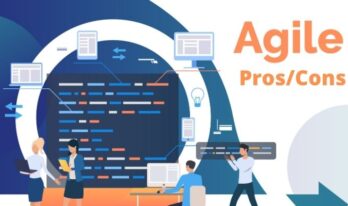In the world of data processing, Business Intelligence and Big Data are two key players. As much as Business Intelligence serves our decision-makers and business leaders, Big Data can explore new possibilities to revolutionize the field of business intelligence.
Many people use the terms Big Data and Business Intelligence as synonymous like they have some similarities to each other or are complementary to each other.
It's easy to get lost in business-related terminology, but understanding the difference between Big Data and Business Intelligence is very important to be able to benefit from both technologies.
Big Data and BI are two distinct processes that occupy unique roles in the market. To clear up your doubts once and for all, continue reading this article!
BI helps to make decisions by finding answers to the questions posed by the "known" business of the company, where Big Data uses the MPP approach and can uncover questions, answers, and perspectives that could be unsuspected until then.
Simply put, Business Intelligence will be interested in questions of the "what and where" type. On the other hand, Big Data analytics makes it possible to answer to "why and how".
BI aims to collect, clean, and enrich structured or semi-structured data and then store them in different SQL databases. Data from various sources is stored in a data warehouse.
Its goal is to provide business decision support with reports and dashboards.
Over time, BI has spread to more and more varied areas, starting with accounting issues and going as far as major areas of business such as customer relations.
It allows us to have a view of the past, the present, and to anticipate the future with the help of predictions.
Top 3 Open Source BI tools:
- BIRT:
BIRT was first released in 2004 is an open-source analytics platform helping with producing reports which are visually appealing. - JasperReport:
Written entirely in Java, JasperReport is one of the most prominent and widely-used open source reporting tools and is able to use data coming from any kind of data source. - KNIME:
KNIME is an open-source BI tool that integrates various components for data mining and machine learning. Data can be enriched with the help of several commercial extensions that can be availed here.
Big Data, as the name suggests, refers to extremely large data sets that will be complex to manage with conventional databases.
In Big Data we often talk about the 3V's theorized by Gartner which is namely volume, velocity, variety.
The strong evolution of the masses of data, the speed at which its data transit, as well as the diversity of its sources, will push us to the use of powerful tools to be able to exploit all the data for better decision-making.
Top 3 Open Source Big Data tools:
- Hadoop:
Created by Apache, Hadoop is an open-source software framework that facilitates the distributed processing of a multitude of data sets through hundreds of servers operating correspondingly. Many companies have been using Hadoop for a long time to sort and analyze big data. - Open Refine:
OpenRefine is an open-source data visualization and data management tool which allows you to quickly clean datasets and transform them into a workable format. Even users without any technical skills can use this solution. OpenRefine also lets you instantly create links between datasets. - Cassandra:
Apache Cassandra is a highly scalable NoSQL database. It is able to monitor large sets of data across various server clusters and on the cloud. Initially developed by Facebook to meet a need for a database powerful enough for the inbox search function.
Nevertheless, both BI and Big data differ in several ways, be it in the way they are carried out (tools, processes, and technologies), the way they're being implemented at the level of the type of data they process (sources and formats), their scope and their final objectives.
- In the context of BI, information is stored on a central server (data warehouse), while Big Data involves a distributed file system, which makes operations more flexible but also the preservation of data safer.
- Big Data deals with structured and unstructured data (from different sources including those external to the company, such as social networks), which is not the case for Business Intelligence which analyzes structured or semi-structured data and for the most part internal to society. The formats are mechanically less varied.
- BI uses historical data to make future decisions, where Big Data solutions can not only look for past data but also real-time data sources. This brings an agile side to the reflection.
- Big Data solutions bring processing functions to the data rather than the other way around. The analysis is information-oriented, which is not the focus of business intelligence tools, as they tend to bring data to treatment.
Data mining is the practice of examining data that has already been collected - using various types of algorithms, usually automatically - to generate new information and find patterns.
It enables you to predict and discover small business-relevant factors and identifies data behavior patterns by creating new analytics indicators for Business Intelligence.
Concluding Words
After going through the Business Intelligence vs. Big Data comparison you must have understood that BI addresses the known questions and our preconceptions regarding data.
While Big Data engages with a universe of new possibilities and questions we don't know yet.
Both are of great importance and must be well understood so that companies can make the best use of them, thereby achieving the desired values and results in the business.
You may also like to read:
Big Data Trends and Predictions to look out for in 2019
Business Intelligence vs. Data Science: Which One is Better at Data Analysis
Big Data: Business Intelligence Insights for 2019
Data Mining Security Issues You Need to be Aware Of




